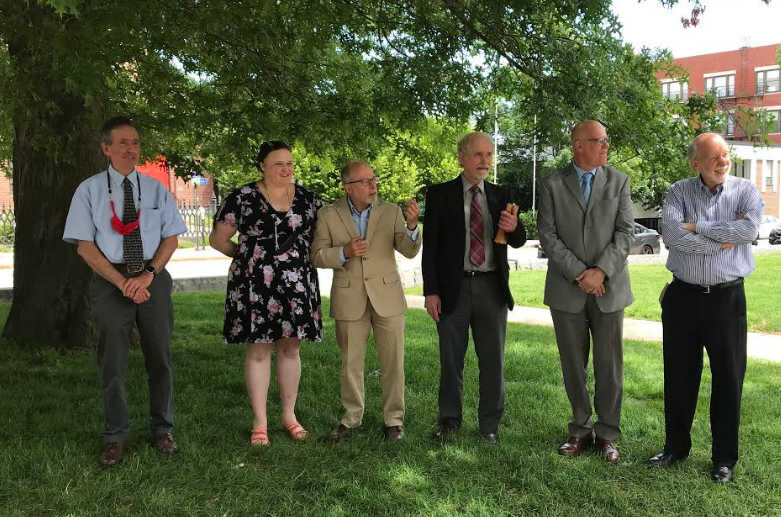By GARRY RAYNO, InDepthNH.org
CONCORD — A hearing is scheduled for the plaintiffs’ motion in the latest lawsuit challenging the state education funding system to block setting the rate of the Statewide Education Property Tax.
The hearing on the motion will be at 10 a.m. Nov. 4 in Grafton County Superior Court in North Haverhill.
The suit was brought by several residential and commercial property owners claiming the current system uses property taxes of widely varying rates — which the state Supreme Court has already ruled unconstitutional — to fund the majority of the cost of public education.
The plaintiffs filed a motion earlier this month asking the court to block the state from setting the rate for the Statewide Education Property Tax (SWEPT) or to set it at $0.
The statewide property tax is used to pay some or all of the state’s share of adequate education grants to communities.
However, in property wealthy communities the property tax raises more than necessary to fund the adequate education grants and the communities are allowed to retain the extra money rather than sending it to the state.
Other property wealthy communities set their education property tax rate in negative numbers in order to avoid paying the statewide tax at all.
The plaintiffs’ attorneys, Andru Volinsky, John Tobin and Natalie Laflamme, said in the motion to stop setting the rate, the state continues to ignore the New Hampshire Supreme Court by using varying rates for the statewide property tax, which hurts communities with lower property values.
“Ever since (Claremont II,) the State has tried numerous mechanisms to avoid implementing an equitable tax system that would have the effect of imposing a fairer tax burden on wealthier towns, requiring the courts to intervene and protect the constitutional rights of New Hampshire citizens.
“Now, the State is primed to once again impose a tax using the same mechanisms previously held unconstitutional that will result in some taxpayers paying up to seven times as much for education funding as their wealthier counterparts,” the attorneys wrote in their motion to the court.
The SWEPT accounts for about 30 percent of education funding in the state, raising about $363 million annually.
Since 2011, the wealthy communities have been allowed to retain the extra money raised through the tax, which in essence lowers their rates.
“The SWEPT tax as currently administered is not uniform in rate as the State allows towns with surplus SWEPT funds to either set a negative local education tax rate to offset the State’s official equalized SWEPT tax rate or retain the excess,” the motion states. “Both of these mechanisms have been previously deemed unconstitutional by New Hampshire courts.”
The Department of Revenue Administration sets property tax rates in the fall for collections due in December.
This week, the House Education Committee rejected a bill that would have changed the education funding system.
The Supreme Court decisions in the original Claremont education lawsuit, clearly left it to the legislature to fix the inadequacies and unconstitutional issues in the system, but to date the legislature has failed to address the key findings of the court.
The current lawsuit challenging the funding system, is one of two suits before the courts challenging the state’s public education system.
The ConVal Regional School Districts and others sued the state claiming the state’s per-pupil, adequate education rate is too low and does not cover most school education costs.
The original Claremont decision found the state has an obligation to provide each student with an adequate education and to pay for it.
The state’s current rate is $3,636 per student and Superior Court Judge David Ruoff sided with the districts but declined to set a higher rate.
The Supreme Court generally agreed but sent the case back to Ruoff telling the plaintiffs to present their actual costs and why such items as transportation and capital costs should be included in the rate, which are not included under the current system.
That case is before Rockingham County Superior Court with a trial set for next year.
Garry Rayno may be reached at garry.rayno@yahoo.com.





